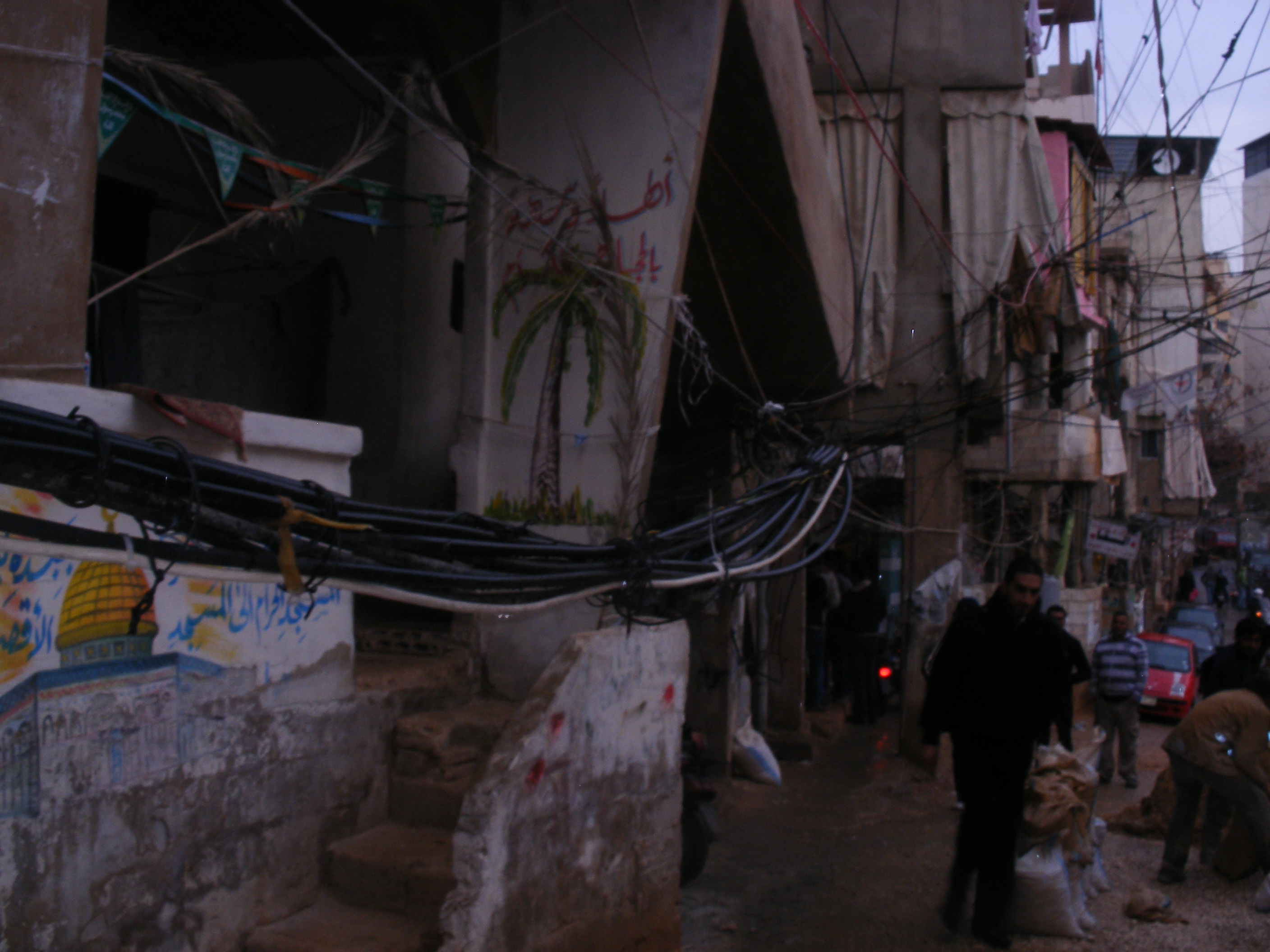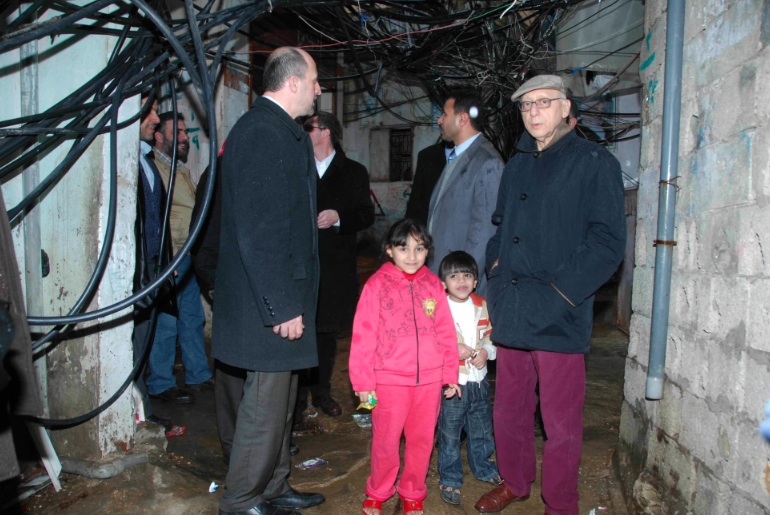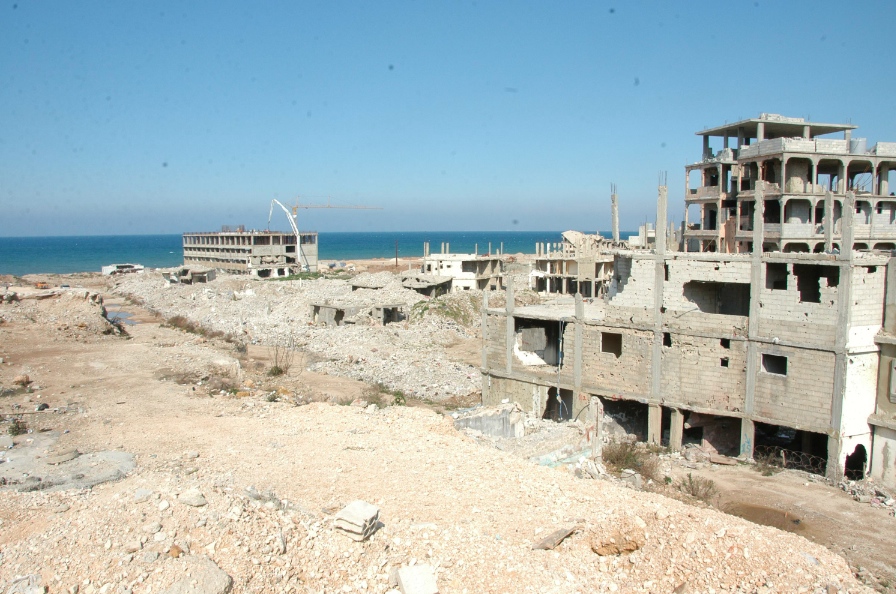For the past sixty-three years, millions of Palestinians have lived as refugees in areas of the occupied West Bank and Gaza Strip and in surrounding countries. The United Nations High Commission on Refugees (UNHCR) describes their plight as “by far the most protracted and largest of all refugee problems in the world today."
Three-quarters of all eleven million Palestinians throughout the world are refugees, though their plight is often ignored. Many key issues in the Middle East, political and humanitarian, arose as a consequence of Israel’s denial of the right of refugees to return to their land.
Multiple international treaties and conventions recognize the inviolable characteristic of the right of return of refugees--including the Universal Declaration of Human Rights, the International Convention on the Elimination of all Forms of Racial Discrimination and the International Convention on Civil and Political Rights. Humanitarian and human rights law and numerous UN resolutions all guarantee the right of return for refugees.
The United Nations Relief and Works Agency (UNRWA) runs the twelve camps in Lebanon that approximately 400,000 Palestinians live in. There are, in addition, a number of "unofficial" refugee camps that UNRWA does not oversee. Together the population of these camps amount to approximately ten percent of the country’s population.
In 1948, Israeli attacks and ethnic cleansing forced Palestinians from the north of Palestine, particularly from cities such as Haifa, Safad from their homes. Approximately 100,000 of these people fled to Lebanon.
By the 1960s, with Israel refusing to implement UN General Assembly Resolution 194 - which guarantees the right of Palestinian refugees to return to their land - the initially tolerant Lebanese attitude gave way to the fear of tawtin (naturalization of the refugees) and its potential impact on the delicate balance of Lebanese politics. The Lebanese government began imposing harsh measures began on the Palestinians including prevention from undertaking housing improvements, classification as foreigners in order to make work permits difficult to obtain, and the imposition of martial law on all refugee camps. This would later extend to the banning of Palestinians from owning property.
In the 1970s and 1980s, the refugee camps were a key source of the Palestine Liberation Organization’s (PLO) resistance to the occupation. Israel’s response was brutal; and included attacks against the Lebanese, further eroding host support for the Palestinians.
The 1975 civil war was followed by the 1982 Israeli invasion that sent the PLO into exile from Lebanon. Despite American guarantees, Palestinian refugees were left exposed to attacks from Israel and their Christian militia allies, the Phalange, including the notorious Sabra and Shatila massacre.
Politically marginalized, without basic social and economic rights, trapped in often squalid camps, and without hope for the future, Palestinian refugees suffer more in Lebanon than in any of the other country that host them.
Lebanon’s confessional system and refugee naturalization
Lebanon’s delicate religious balance determines that politicians handle the Palestinian refugee issue carefully. Lebanon’s population of just over four million is made up of Shi‘a Muslims, Sunni Muslims and Maronite Christians, among the total of eighteen religious groups. Lebanon’s constitution dictates that the president is a Maronite Christian, the prime minister a Sunni Muslim and the speaker of the House a Shi‘a Muslim.
The Christian leadership in particular has taken advantage of concerns that the Palestinian refugees will become naturalized citizens and tip Lebanon’s demographic balance in favor of Muslims. One member of parliament told the International Crisis Group in 2008: “Our official policy is to maintain Palestinians in a vulnerable, precarious situation to diminish prospects for their naturalization or permanent settlement.”
Laws to improve Palestinian refugees` rights
Palestinian refugees in Lebanon who seek to improve their lives face intolerable restrictions and bureaucracy, forcing families to rely on child labor in many cases. Compounding their economic hardship, Lebanese bureaucracy places limits on refugees’ freedom of movement, with permits required for travel beyond their camps. They are isolated from their compatriots living in the West Bank, Gaza Strip and within Israel. They constitute a virtual state within a state, thinly-spread and powerless throughout Lebanon.

[Bourj al-Barajneh Camp]
The last decade has seen a slight and gradual improvement in the situation, culminating in August 2010 when a proposal was put before the Lebanese parliament to significantly improve the rights and conditions of the Palestinian refugees. Two months earlier, outgoing Prime Minister Saad Hariri asked during a parliamentary debate on the issue, "should we deprive Palestinian refugees in Palestinian camps of their rights, so that they become terrorists in the future? ... We have an historic opportunity to vote on this proposal.”
The legislation was passed in parliament, and if implemented will lead to a slight improvement of the refugees’ situation. Palestinians would be able to claim free work permits for private-sector work as well as claim insurance for work-related accidents. Pensions and limited social security benefits would be granted, but the will remain barred from professions that require syndicate membership, including law, medicine and engineering.
UK politicians assess the situation in Lebanese refugee camps
In February 2011, UK-based lobby groups the Palestinian Return Centre and the Council for European Palestinian Relations jointly took a delegation to Lebanon to assess the situation in the refugee camps. The delegates, including three British members of parliament (MPs) and four members of the European Parliament (MEPs), visited the Bourj al-Barajneh and Sabra-Shatila camps in Beirut, and the destroyed Nahr el-Bared camp near Tripoli in the north. What the delegation saw was wretched and desperate. With UNRWA unable to meaningfully expand the size of the refugee camps since their establishment, the growing Palestinian population is forced to build upwards and share the limited space they have been granted to live in.
Leader of the delegation, veteran MP Gerald Kaufman, said:
"When I went to Gaza in 2010 I thought I had seen the worst that could be seen of the appalling predicament of Palestinians living in conditions which no human being should be expected to endure. But what I saw in the camps in Lebanon is far worse and far more hopeless. The conditions are unspeakable, but for over 400,000 of our fellow human beings this is their life: today, tomorrow and for a future that cannot even be foreseen. At least in Gaza, frightful though the situation is, the people are free within the confines of their blockaded prison. In the camps of Lebanon they are not free.”

[Sir Gerald Kaufman MP at Bourj al-Barajneh]
At the three camps, delegates noted a culture of stagnation and dependence. There were calls for an urgent reassessment of the positions of Palestinian parties and UNRWA.
Michael Connarty MP, after seeing the destroyed Nahr el-Bared camp and its temporary prefabricated accommodation, said: “I have been in many camps over the past twenty-five years which have UNWRA funding and administration but none which gave me such a feeling of unease as those I saw in Lebanon.”
UNWRA has appointed over 1,800 staff, and their comfortable living standards differ sharply from those of Palestinians, many of whom at Nahr el-Bared did not distinguish UNRWA from the Lebanese government or from other international diplomats.
Connarty said:
“The greatest failure of UNRWA lies in the obvious inability to deliver resources effectively or projects efficiently,” said Michael Connarty. The Nahr el-Bared reconstruction seemed a failed project when the delegation visited. Destroyed by the Lebanese government on the pretext of the presence of an international Jihadi group in the camp in 2007, every section of rebuilding was at least a year behind schedule. UNRWA admitted they knew there was illegal and uncontrolled sub-contracting on the site in addition to Lebanese government impositions that slowed progress and added costs. “In comparison, the schools and medical facilities being paid for and built with separate and targeted funds from Arab nations were a hive of activity rising steadily within budget, making a mockery of UNWRA’s sorry efforts.”
The visit to Sabra-Shatila, where the delegation laid a wreath to commemorate the lives of the thousands of victims of the 1982 massacre, was revealing. Sabra-Shatila has seen no transformative change in almost three decades since the massacre, as the delegation heard first-hand from survivors. Having previously visited many Palestinian refugee camps, MP Jeremy Corbyn, wrote: “The endless utterances about a peace process mean very little to those stuck in refugee camps. There have been international legal processes but they have not achieved anything in respect of Sabra and Shatila.”
.jpg)
[Veterna MP Jeremy Corbyn at Bourj al-Barajneh]
From its post-war government in 1945 until 1982, the British Labour Party took a position of uncritical support for Israel. The 1982 Labour Party annual conference saw the party at last wake up to the reality of Israeli policies towards the Palestinians and condemn the massacre at Sabra and Shatila. Jeremy Corbyn is critical of the most recent Labour government of Tony Blair and Gordon Brown who “seemed very happy to always equate Israel and Palestine as though they were equivalent in size and strength … In 2006 Israel launched yet another attack on Southern Lebanon and disgracefully, the Labour government did not even call for a ceasefire for several crucial weeks as the bombs rained down on Lebanese and Palestinian people alike.”
The current UK government’s emphasis on security, expressed by the ambassador Frances Guy in Beirut, during our visit, needs immediate review as it supersedes human rights and keeps Palestinians in the position of perennial victim. Meetings after the delegation with Foreign Secretary William Hague and Secretary of State for International Development Andrew Mitchell revealed them to be sympathetic individuals keen for information. But decisive action on their part is highly unlikely unless Palestinian refugees become more prominent as an international issue. Between them, the two government Ministers and the Ambassador did not present one practical suggestion for addressing the crisis. The UK is one of the more generous contributors to the refugees in Lebanon, but humanitarian aid should be replaced by restoration of human and political rights. This year the Department for International Development gave 2.4 million dollars for health care in the camps. It lasted one month.
In Sabra-Shatila, the delegation was at least able to walk through a bustling market street and had a sense that they were in Lebanon. Across Beirut, Sir Gerald Kaufman described the Bourj al-Barajneh camp as “the worst single place I have ever seen, with children haunting narrow gullies with sewage flowing down the middle; with no legitimate electricity supply, with tangled wires from bootlegged electricity hanging so low in the alleys as to constitute a near-mortal hazard. Yet, 20,000 are doomed to live out their lives there, from childhood to old age.”
Despite their obvious failings, the Lebanese government agrees with UNRWA that the living standards of the refugees are catastrophic. The meeting the delegation held with new Prime Minister Najib Mikati offered some hope that Lebanon is now prepared to take steps to improve the humanitarian situation. If the Palestinian Authority were to issue the refugees with passports or equivalent identity papers, Mikati stated that he would propose that Lebanon grant work permits as well as significantly improve property, civil, and human rights. This would give the refugees everything short of citizenship and voting rights.

[Nahr el-Bared]
But disenfranchisement runs deep in Lebanon. Michael Connarty noted the response of the Palestinian factions when we passed Mikati’s suggestion to them:
“The instant plea that `Israel would not allow it` from Palestinian organizations opened my eyes further to the degree to which the ability to deal with, or use the Palestinians as victims in Lebanon may be preferred to actually viewing their abused position as a problem that requires workable solutions.”
The delegation found that Palestinian factions rejected any suggested improvement that was likely to diminish leverage of the demand for the right of return. These factions preferred to stress the need to increase their own control over international aid budgets.
Michael Connarty wrote about the meeting with Osama Hamdan, head of the Hamas international relations department:
“The meeting was significant in illustrating the context in which forward progress must be developed. Osama Hamdan spoke with the self-righteousness I had last encountered when listening to Sinn Fein/IRA representatives during the killing years in Northern Ireland. The Lebanese Prime Minister’s suggestion was dismissed out of hand and the only way forward that was countenanced was the return of all the Palestinians to Palestine/Israel … I was convinced after our meeting with Hamas that they offered little but further victimization of Palestinian refugees.”
Visiting the camps of Lebanon, it is difficult to believe that the Palestinians are not new arrivals but have been living as refugees there for sixty-three years. It is equally amazing to consider that the abject living conditions are the culmination of huge international expenditure through the UN.
.jpg)
[Sewers and Wiring at Bourj a- Barajneh]
Lebanon has a clear responsibility to lift the Palestinian refugees they host out of the most appalling poverty. They have chosen not to. Meanwhile, Israel and its supporters in North American and European governments have decided against fulfilling responsibilities that would address the crisis.
The Palestinian refugees of Lebanon are politically and economically weak and politically disenfranchised, a step further away from peace and justice than their compatriots in the West Bank, Gaza and within Israel. Little will change for them unless improving their situation is forced onto the agenda. As solidarity organizations in the West seem only to pay lip service to the refugees, it is naive to hope that the international community or media will set aside their own narrow interests enough to make the desperately-needed change.
[Articles by the three MPs on the refugee camps in Lebanon can be downloaded here. The CEPR / PRC delegation report can be downloaded here.]